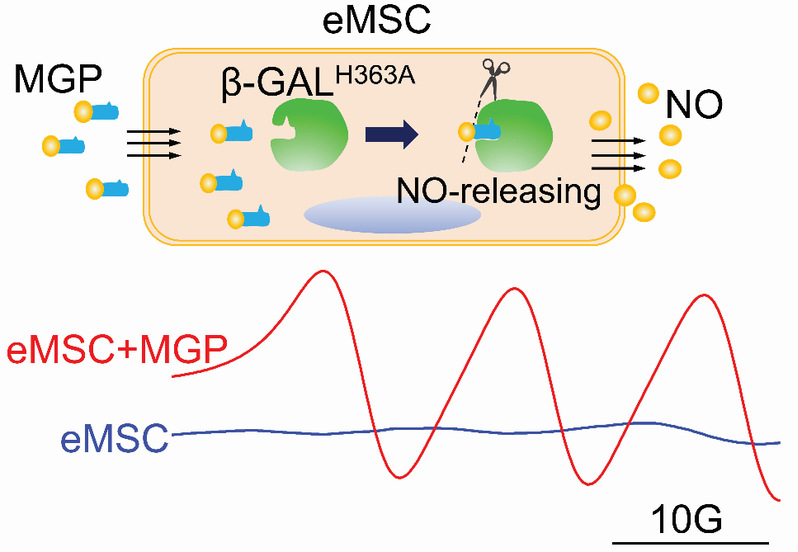NKU Team’s Cell-based Nitric Oxide Gas Molecular Delivery System is of Great Significance for Research on Regenerative Medicine
Recently, a research paper entitled “Genetically engineered mesenchymal stem cells as a nitric oxide reservoir for acute kidney injury therapy” co-authored by Li Zongjin of the School of Medicine of Nankai University and Zhao Qiang of the College of Life Sciences was published in eLife, a world-renowned academic journal. Under this study, a nitric oxide (NO) gas molecule delivery system based on engineered mesenchymal stem cells (MSCs) was developed for the first time, which achieved the controlled release and targeted delivery of NO and augmented the therapeutic efficiency of MSCs in a mouse model of acute kidney injury. The study was published through eLife’s traditional peer-reviewed process, and was selected as “eLife digest” by the journal. The editors spoke positively of the study: “The significance of the study is that it provides in vivo demonstration that MSCs can release NO in a spatiotemporal manner in a mouse model of acute kidney injury thus contributing to regeneration. This constitutes a landmark finding with profound implications that are expected to have widespread influence. The work not only shows the therapeutic efficiency of MSCs, but also holds promises for regenerative therapy by enhancing the therapeutic efficiency of stem cells. Thus, it is felt that the newly generated tools will be used by many investigators thus making the findings interesting to a broad audience”.
Gaseous signaling molecules (GSMs), such as nitric oxide (NO), play a vital role in physiological and pathological processes such as tissue damage repair. However, NO has an extremely short half-life. While the therapeutic effect of NO is improved by various types of artificial carriers, it still faces grim challenges. MSCs can be used as ideal drug delivery vector for their abundant origin, simple extraction process, low immunogenicity, ease of genetic modification, as well as homing and paracrine capabilities. Therefore, a cell-based NO delivery system is expected to become a new gas delivery platform, providing a new strategy for the precise delivery of GSMs.

Figure: Nitric oxide (NO) gas molecule delivery system based on engineered mesenchymal stem cells (eMSCs)
Nankai University doctoral graduate Huang Haoyan, postdoctoral researcher Qian Meng, and doctoral student Liu Yue are the co-first authors of the paper, and Professors Li Zongjin and Zhao Qiang are the co-corresponding authors.
Link: https://doi.org/10.7554/eLife.84820
(Edited and translated by Nankai News Team.)









